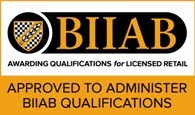
Title – Drink trader’s luck runs dry
Source – Staines Informer
Date – 23rd October 2009
I’m not about to write another blog entry on the virtues of Responsible Alcohol Retailing and the short term business model that involves selling alcohol to children; these are areas I have touched on many times in the past.
Why I think this article is interesting is that it highlights one of the virtues we discuss in a number of our courses; people working in the Licensed Retail Sector need to work with the authorities in a partnership approach, rather than seeing them as ‘the enemy’.
We urge people to consider the following mantra which we are often heard quoting: ‘if you are viewed as seen of the solution, then you are less likely to be treated as part of the problem’.
It seems from this article (and I emphasise that I am unfamiliar with the case itself) that this alcohol retailer was looking for ways round the Licensing Act and the appeals process; through the constant delays they were able to continue to sell alcohol despite the offences committed. That the act provides for traders to continue to trade pending appeal is very important and must be maintained, any other course of action (where licensed premises were forced to close) would in many cases mean businesses become insolvent while they wait for an appeal hearing.
However the law must not be toyed with or abused otherwise the industry as a whole will undoubtedly suffer as a result.
What always strikes me as odd in these cases is the short sightedness of the business owner. A premises without a license to transfer, has a distinctly lower re-sale value then one with a licence with relatively few restrictive conditions.
What I don’t like to see is this type of prejudice by licensing officers who suggest that somehow it is the premises history which determines future ‘trouble’ and use this to make future premises licence applications more restrictive through the addition of conditions based on history rather than the content of the application, the integrity of the applicant or the nature of the new business.
We see this regularly; a ‘troubled’ premises has been closed and the licence revoked and new proactive responsible business owners are punished for the inability of previous owners. Surely it is obvious to see that although there may initially be a ‘history’ associated with a premises, a new professional designated premises supervisor will soon change this. Our experience shows that long term trouble is almost always due to poor management rather than simply the premises. Every licensing officer will know of an area on their ‘patch’ which has good and bad premises on it. What is the real difference between these two; almost always the DPS / manager.
This approach that the history of this premises should determine that future applications should ‘…not be easy in light of the unit’s troubled history.’ punish the new owners, customers and the community generally rather than the person who should be punished; the original owner.
The Licensing Act and subsequent guidance issued, provides for each and every premises licence to be considered on its own merits and without prejudice; for me this should include poor behaviour of previous owners who are no longer associated in any way with the premises.
At Beyond The Blue we run a number of courses for those working in the Licensed Retail Sector to help them sell alcohol more responsibly. These include; The Award in Responsible Alcohol Retailing (ARAR) designed for front-line staff to help them meet their statutory requirements; The National Certificate for Personal Licence Holders (NCPLH) which qualifies candidates to apply for their personal licence; Our Conflict Management and Resolution (CMR) course compliments these courses to help employees deal with Workplace Violence and alcohol related disorder.
Please visit our website at www.btbl.co.uk. For a complete list of Blog entries visit our National Press Archive page.
For more information on any of our services, please call us on 0845 602 55 95 or Contact Us.






No comments:
Post a Comment